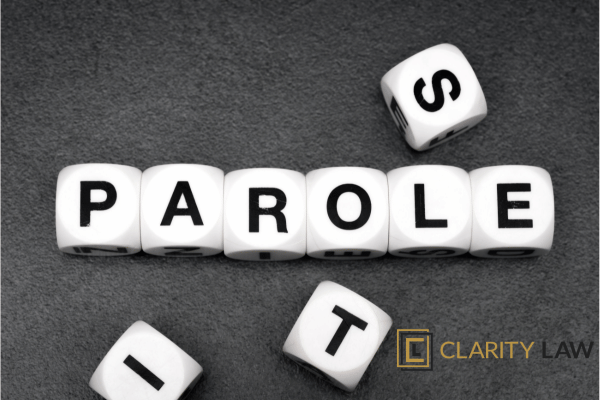
Parole is when a defendant is supervised in the community by a corrections officer. A person will be placed on parole after he or she has been sentenced to imprisonment. The parole date can be on any day of a prison sentence, including the first day.
Types of Parole
There are two types of parole: court ordered parole and board ordered parole. These are otherwise called a ‘parole release date’ or ‘parole eligibility date’. Court ordered parole is when the Court orders the date a defendant is released on parole. Board ordered parole is when the Court sets a date that the defendant is eligible to apply for parole. When the date set by the Court comes, that is when a prisoner can apply to the parole board for parole. It is then the parole board’s decision whether to release the prisoner on parole. The parole board has 120 days to make a decision about a prisoner’s parole, or if the parole board has deferred its decision, 150 days.
In practical terms, once a person is released on parole the only difference between the two types is the parole board can suspend, vary or cancel a person’s parole if they discover they were given wrong information as part of the prisoner’s parole application.
When Does an Eligibility Date Apply?
If a defendant is sentenced for a serious violent offence[1] or a sexual offence.
a. A serious violent offence is when a person is sentenced for a violent offence for a period of 10 or more years.
b. A sexual offence is any sexual offence.
If a defendant is sentenced for a prison term longer than three years.
If the defendant was on parole, his parole was cancelled by the parole board, and the Court sentences him to a new term of imprisonment.
The defendant was on parole and he is sentenced to a term of imprisonment for an offence committed while on parole.
When does a Parole Release Date Apply?
If a parole eligibility date does not apply, then a parole release date will apply.
What is Parole?
Parole is when a person is serving a prison sentence, but doing so in the community. Under the mandatory conditions of parole include, a defendant must:
- report as directed to their supervising Office;
- carry out the lawful instructions issued by their supervising officer;
- give a test sample if required;
- notify of any change of address or employment details; and
- not to commit an offence.
The idea of parole is to supervise a defendant in the community while he serves the rest of his sentence. It also gives a defendant a greater opportunity to rehabilitate than he would have in prison.
If a person breaches any condition of his or her parole, the parole board has the power to cancel or suspend the parole, even if it was court-ordered parole.
What Happens if Parole Conditions are Breached?
According to the Corrective Services Act 2006, section 205, the parole board may, by written order—
- amend, suspend or cancel a parole order if the board reasonably believes the prisoner subject to the parole order—
has failed to comply with the parole order; or
poses a serious risk of harm to someone else; or
poses an unacceptable risk of committing an offence; or
is preparing to leave Queensland, other than under a written order granting the prisoner leave to travel interstate or overseas; or
-
amend, suspend or cancel a parole order, other than a court ordered parole order, if the board receives information that, had it been received before the parole order was made, would have resulted in the board making a different parole order or not making a parole order; or
-
amend or suspend a parole order if the prisoner subject to the parole order is charged with committing an offence; or
-
suspend or cancel a parole order if the board reasonably believes the prisoner subject to the parole order poses a risk of carrying out a terrorist act.
What Does the Parole Board Consider?
When deciding whether to release a person on parole, the parole board will consider multiple factors which include:
- the prisoner’s criminal history and pattern of offending;
- whether there are any circumstances likely to increase the risk the prisoner presents to the community;
- whether the prisoner has been convicted of a serious sexual offence or serious violent offence;
- any comments made by the Judge during the sentence hearing;
- any medical, psychological or psychiatric risk assessment reports relating to the prisoner – tendered at sentence or obtained while the prisoner has been in jail;
- the prisoner’s behaviour in prison;
- whether the prisoner has access to supports or services in the community;
- whether they have suitable accommodation upon release; and
- the prisoner’s progress and compliance in undertaking any recommended rehabilitation programs and interventions while in prison.
Conclusion
As can be seen, the law around parole and parole conditions is strict. While we at Clarity Law do everything possible to avoid our clients going to jail, sometimes it is inevitable. If it must happen, we have the knowledge and expertise to explain a parole order in detail, to ensure you have the best chance of completing your order.
[1] If a person is sentenced for a serious violent offence, he must serve the lesser of 80% of his term of imprisonment, or 15 years, before eligible for parole.






